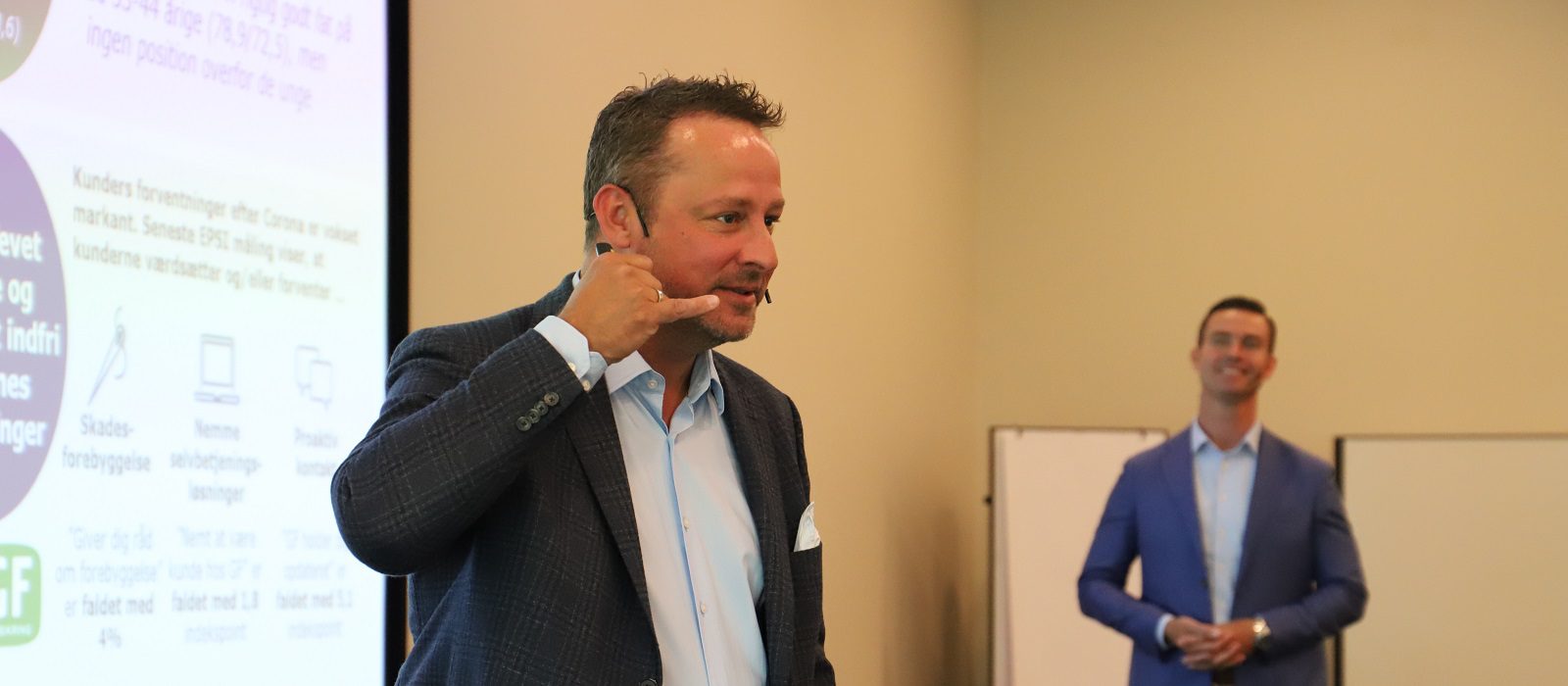We are pleased to share this guest blog from ICMIF Supporting Member organisation Aviva Investors. The article was written for the Aviva Investors website and is reproduced here for the benefit of ICMIF members with their permission. Mark Versey will be speaking at the upcoming ICMIF Centenary Conference in Rome, Italy (25-28 October 2022) in a session on “Transitioning to a net-zero future”.
Asset managers and other financial institutions have a duty to act in the best interests of their customers and society. Macro stewardship will be crucial to meeting their responsibilities, argues Mark Versey, CEO of Aviva Investors. Mark shares why old notions of stakeholder capitalism are no longer fit for purpose; what Aviva Investors mean by macro stewardship how it can help address market failures; and why macro stewardship must align with corporate engagement and capital allocation.
Stakeholder capitalism is under fire from multiple directions. Caught up with a rising backlash against ESG investing, some hard-line commentators argue it is vague and lacks teeth.
Others invoke the term ‘woke’ capitalism and argue ethical governance should be left to politicians. In the words of Milton Friedman, they believe the role of business should be simply “to increase its profits”.
The critics are wrong: in my view, a more nuanced and inclusive form of capitalism will lead to much better outcomes for societies and economies than a model that pursues profit alone. However, stakeholder capitalism must become more substance than slogan if it is to help tackle the biggest issues we face, from the climate crisis to rising social inequality.
Part of the disparity in views and lacklustre take-up relates to the broad definition of stakeholder. The net result is an accountability void: where no one feels agency or pressure to make changes, the resulting paralysis leaves the global commons to rot in the process. We lack a common vision in finance of where we are heading.
The financial system stores up significant systemic risk and interdependencies between its three limbs of insurance, banking and investment. If one element were to fall, it could bring the whole system crashing down. This would not be a financial crisis; it would be a collapse. While we can and have recovered from financial crises, a collapse is irretrievable.1
At the heart of the challenge is a complex and delicate dance between consumer and end investor demand on the one side, and governments and regulators on the other. Asset managers and investment intermediaries are wedged in the middle –the appointed agents and stewards in capitalism’s great game.
It is a crucial role. If done well, the investment industry can ensure greater accountability and transparency on the sustainability issues investors care about.
Unfortunately, the incentives for asset managers and other financial institutions to push for positive systems change and sustainable market reforms – such as stewardship codes, regulations correcting market failures, and information for end-customer demand – are weak. This needs to change. And something we call macro stewardship can help ensure it does.
Financing green, and greening finance
In an environment where people can easily express their views via the ballot box and wallets, it seems strange that, aside from impact investing (which accounts for tiny proportion of overall investment assets), we have no clear way of capturing clients’ sustainability values in mainstream funds. As an industry, we need to do a far better job of incorporating this information with clients’ investment profiles and our own engagement activity to make sure it aligns with the issues they care about most.
If we get this right, it will take us much closer to ‘democratising finance’. Shifting the power from the firm to the customer could be a real force in the investment community.2
Terminology makes life even harder, and ensuring we are all on the same page is no easy task. Clearly labelled funds and marketing materials are prerequisites. The European Union’s Sustainable Finance Disclosures Regulation (SFDR), as well as Green and Social Taxonomies are welcome, as is the expectation the UK will follow suit with its Sustainability Disclosure Regulation (SDR) and fund-labelling regime.
However, the extent to which a product provider is advocating for a more sustainable system should also be one of the factors consumers consider when choosing someone to manage their money. And yet education and clear signals are required to support such value judgements.
We also need to redeploy existing capital at scale, and the faster we stop financing the bad stuff, the easier it will be. We don’t need more sustainable finance as though it was a separate category of money; all of finance needs to become sustainable.3
This is a subtle, but massive distinction – one many investment professionals, practitioners and market commentators have yet to grasp. To be clear, we need green finance and as much of it as possible to help with the transition to net zero and other sustainability targets. The same goes for effective corporate stewardship; holding the polluters and societal abusers to account is needed now more than ever.
Re-defining engagement and stewardship
Yet on their own they will not come close to being enough. The market does not always have the answer and consumer preferences do not always react fast enough to market failures.
Mitigating these kinds of impacts requires systems-level thinking. And macro stewardship could help bring about the corrections needed for the market to price in externalities that are not yet internalised. These include the true cost of carbon, the threat of antimicrobial resistance, water or air pollution and the hidden costs of curtailing talent through diversity and inclusion failures – along with many others.
To act in the best long-term interests of our customers, we need to not only advocate for a sustainable system, but also ensure – to the extent we have tools at our disposal – the financial system is one that has integrity and is not undermined by market failures. Stewardship in the fiduciary sense is being redefined and re-written in response to these concerns.4
The main tools we have are our voice, expertise and authority to support and influence policymakers. For while it is they who have the authority and mandate to address these failings, it is market participants who have the resources, access to information, and expertise to identify them and suggest appropriate corrections.
Aligning and assessing macro stewardship
Stakeholder capitalism and ESG investing should be mutually inclusive and reinforcing; the former cannot work without a properly functioning latter. And for stakeholder capitalism to work – or stick – incorporating macro stewardship into everyday ESG activity is essential.
As well as systems thinking and a holistic mindset, it requires close alignment between micro and macro engagement and in the way capital is allocated. Engaging with companies, sovereigns, state-owned enterprises, policymakers and other influential changemakers in a considered and coordinated way will ensure maximum impact from minimal resource deployment. Alignment for us comes in the form of three pillars – people, climate and Earth – that link closely to the UN Sustainable Development Goals (SDGs).
Take climate change. At the same time as engaging ‘with teeth’ via our climate engagement escalation programme, where high-risk and/or high-impact companies are given a deadline by which progress needs to be made to avoid divestment, we also advocate for policy and systems change on multiple fronts.
I have seen many phases in responsible investing. This era, where targeted corporate engagement and macro stewardship initiatives combine with the reallocation of capital towards more sustainable investments, is by far the most exciting.
Never has so much interest and, more importantly, capital flowed towards the sector. But if we are to properly harness it to avert environmental and societal disasters, tinkering around the edges will not be enough. We need to start actively changing the system itself.
1 James Vaccaro, ‘Blip, crisis or collapse: why financial regulators need to prepare for more than a climate crisis’, Green Central Banking, May 26, 2022
2 Steve Denning, ‘The triumph of customer capitalism’, Forbes, January 10, 2020
3 Article 2.1.c of the Paris Agreement: “Making finance flows consistent with a pathway towards low greenhouse gas emissions and climate-resilient development.”
4 ‘Markets’, Financial Conduct Authority, as of August 2022






